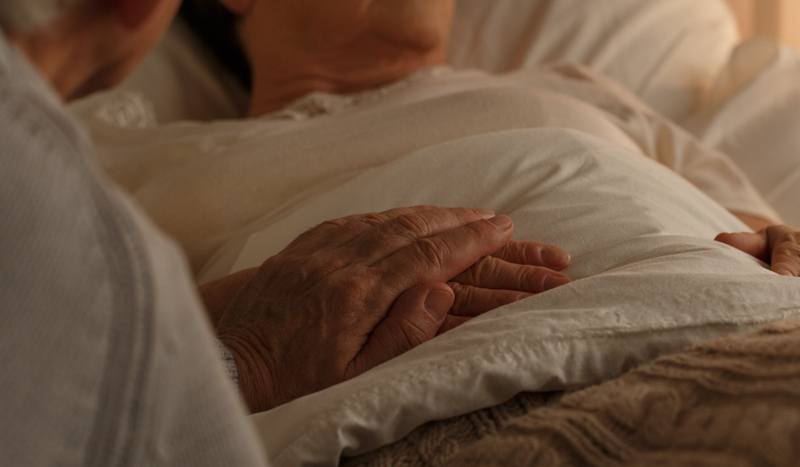
Adobe Stock
As Democratic New York Gov. Kathy Hochul considers whether to sign a bill that would legalize physician-assisted suicide, one disabled New Yorker is warning that it will put vulnerable lives at risk.
New York’s “Medical Aid in Dying Act,” passed by state lawmakers June 9, would allow terminally ill adults with six months or less to live to request life-ending medication. Pro-life advocates are urging Hochul to veto it.
While proponents frame the bill as humane, 34-year-old Dovie Eisner, who lives with nemaline myopathy and relies on constant medical care, sees it as deeply dangerous.
The bill “threatens to undo an assumption we all depend on — that the state is in the business of saving, not ending, lives,” Eisner wrote in an op-ed re-published by the Free Press. “That is especially pertinent for people with disabilities such as me.”
Eisner, who depends on a motorized wheelchair and ventilators, described the US healthcare system as “chaotic and disorganized” and prone to deadly mistakes — dangers he says would worsen if the bill becomes law.
Last fall, his ventilator disconnected, leaving him unresponsive until a passing police officer and ER doctors revived him.
“I was alive — thanks to the determination of law enforcement and medical personnel to keep me that way,” he recalled.
Had assisted suicide already been legal, Eisner argued, the outcome could have been very different. During that same hospital stay, he said, staff nearly administered unneeded antibiotics, provided little nutrition, and left him at risk of an unnecessary tracheotomy.
“And that’s with doctors having no right to kill any patient. Let them do that — legally? You can bet death will become an easy option,” he warned.
Eisner, along with other critics, argued that normalizing suicide as medical treatment opens the door to subtle coercion, especially for those facing expensive care or societal pressure.
“The way the bill is drafted is itself prone to abuse, lacking the necessary safeguards to prevent nonconsensual physician-assisted suicide,” he warned. “Even with the most tightly drafted laws, patients and people with disabilities are likely to face subtle forms of coercion.”
While the bill’s supporters promote the life-ending measure as “death with dignity,” Eisner argued that true dignity comes from preserving life and accompanying the suffering, not ending it.
“[A] good, dignified death cannot come at the hands of doctors helping patients dispatch themselves. It cannot serve the cause of health insurers trying to save a buck,” he wrote.
A convert to Catholicism, Eisner described dying well as “an art” rooted in faith. He also challenged the idea that physician-assisted suicide can be cleanly limited to those near death, warning that pain and suffering are complex experiences.
“So what differentiates them from those who advocates say should be allowed to die? Pain, physical or spiritual,” he wrote. “And don’t we all suffer pain? Aren’t we all terminal? Six minutes, six days, six weeks, six months, six years, six decades — one day, the curse of Adam will catch up with us all.
“Simply put, we don’t know when our time is.”
Eisner referenced the Nazi regime’s Aktion T4 program — which exterminated the disabled as “lives unworthy of life” — to caution against policies that create “a world in which life is cheap.”
Concluding, he urged Hochul to reject the bill, calling such a veto “an act of supreme political courage.”
“I tremble to imagine what this state would become if suicide-by-doctor becomes law,” he wrote. “All New Yorkers are imperiled when the lives of the most vulnerable are rendered cheap.”

